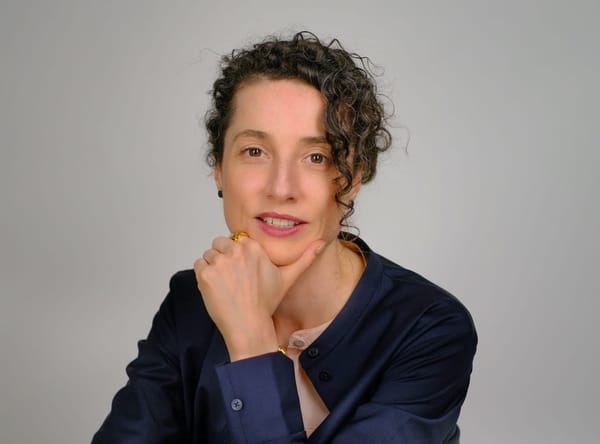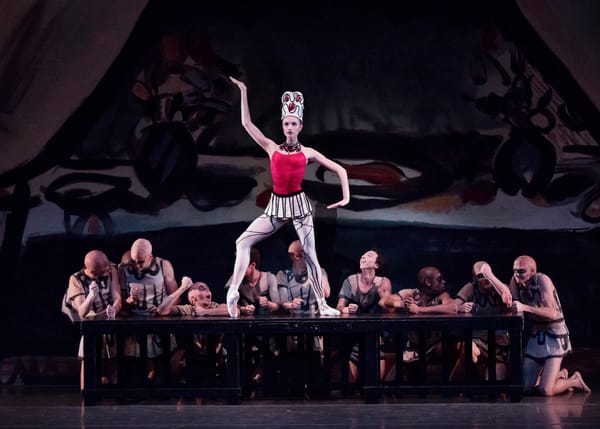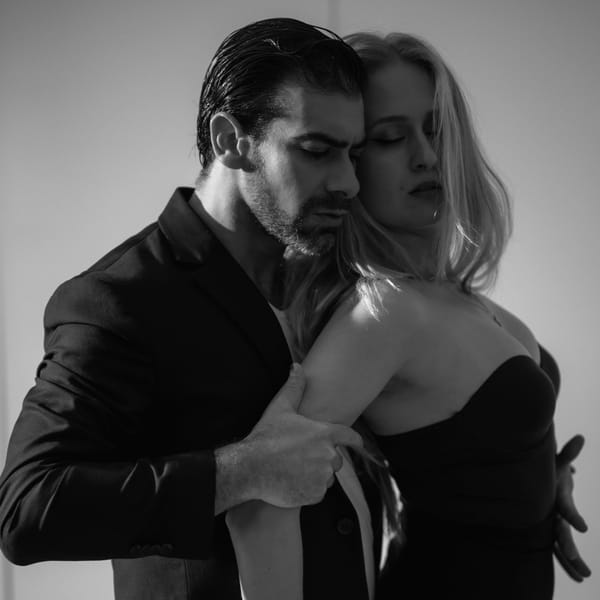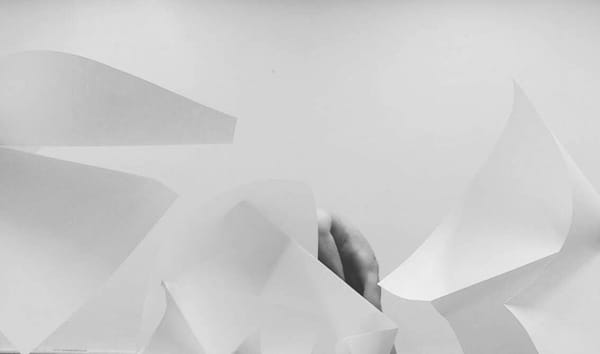Kalakeli: A Jungle Sanctuary of Movement and Play
Nestled in Goa’s jungles, Kala Keli is a dance retreat where movement becomes meditation. By day: contemporary, martial arts, and yoga in open-air studios. By night: bonfire circles and ecstatic beach dances. Here, rigor meets play and bodies remember their wild, joyful language.
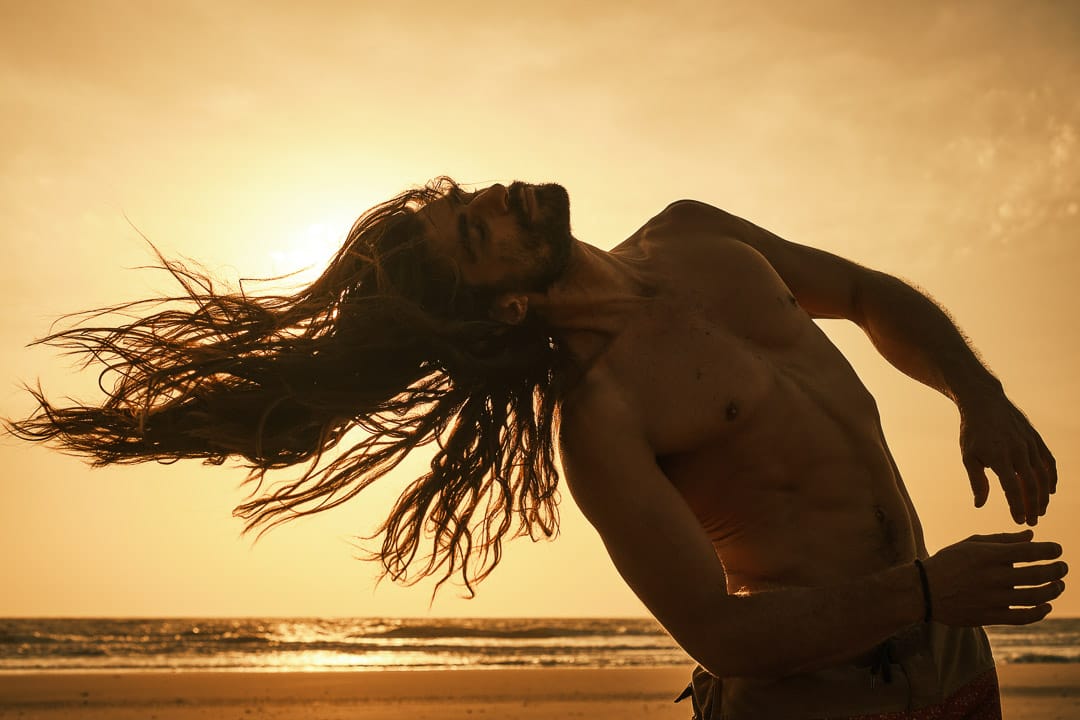
North Goa’s forests hold secrets in their tangled roots and sun-dappled clearings. Here, where the air hangs thick with the perfume of wet earth and ripening fruit, Kalakeli has carved out its home at Jungle Dance—a 2½-acre sanctuary where permaculture principles weave through every structure and studio. Mornings arrive with a chorus of parrots slicing through the canopy, their cries mingling with the creak of bamboo in the breeze. A meandering red-clay path, soft underfoot, leads past groves of banana plants and towering palms to the heart of the space: open-air studios where dancers move beneath an ever-changing sky.
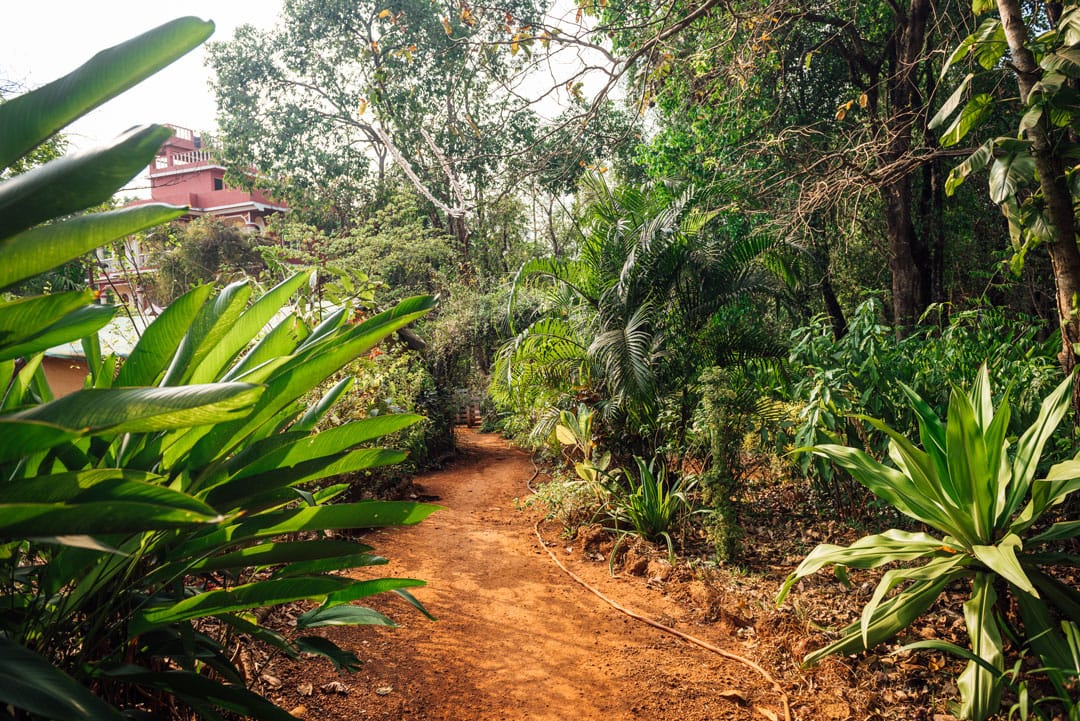
One studio, named Kukom after the ancient jackfruit tree that shelters it, has a retractable roof—an invitation to dance with monsoons and starlight. Nearby, a simple café serves meals where every spice tells a story: turmeric-laced dal, coconut chutney pounded fresh that morning. To the west, emerald rice paddies ripple in the wind; to the east, the Arabian Sea murmurs against Mandrem’s shores, just ten minutes away by scooter. This is a place where the boundary between practice and life dissolves, where fireflies punctuate the dusk, where kingfishers streak like blue lightning past the showers, and where the community gathers nightly around flames to trade stories or surrender to the pulse of ecstatic dance as the sun melts into the horizon.
The Architects of Play: Navala & Micka
Navala Chaudhari and Mickaelis "Micka" Karagianis did not set out to build just another retreat. They envisioned a rebellion—a space where the rigidity of traditional training would give way to something more real, more honest. Navala, whose London upbringing collided with Shaolin Kung Fu before she carved a career in contemporary dance, carries the grace of a performer who has shared stages with Akram Khan and the restless curiosity of an artist who still believes in wonder. Micka, a Belgian former boxer, speaks of his first yoga class with the reverence of a man who stumbled upon an undiscovered continent. "I walked in thinking it was stretching," he grins. "I walked out knowing it was alchemy."
Together, they planted Kalakeli in Goa’s fertile soil during the pandemic’s isolation, betting on a simple truth: movement is our first language. The name itself, drawn from Sanskrit, means "playful arts", a nod to their belief that growth happens not through grim repetition, but through the kind of full-bodied curiosity children know instinctively.
Days Woven from Sweat and Sky
To step into Kalakeli’s rhythm is to surrender to a cadence older than studios or schedules. Dawn arrives with the rustle of sarongs pulled on sleepily, feet padding across cool earth to morning practice. Some days begin with yoga’s measured breath; others with silent meditation as the jungle’s symphony swells—geckos chirping, a woodpecker’s staccato rhythm. By midmorning, the studios hum with the scrape of bare feet on wood: ballet’s precise geometries giving way to the unpredictable flow of contemporary improvisation, or capoeira’s ginga steps melting into martial arts drills where every block carries the weight of intention.
Afternoons might find dancers sprawled in the shade dissecting anatomy diagrams, or waist-deep in the river exploring contact improvisation as tiny fish nip at their ankles. Evenings could bring a sweat-drenched boxing session under monsoon clouds, or a sound bath where gongs vibrate through tired muscles. The curriculum reads like a map of human motion: biomechanics lectures followed by primal movement crawls, Ayurvedic workshops preceding ecstatic dance under the full moon.
"People think discipline means rigidity," says Navala, watching a student laugh as they tumble out of a handstand. "But real discipline is showing up open—to falling, to not knowing, to being beginner again."
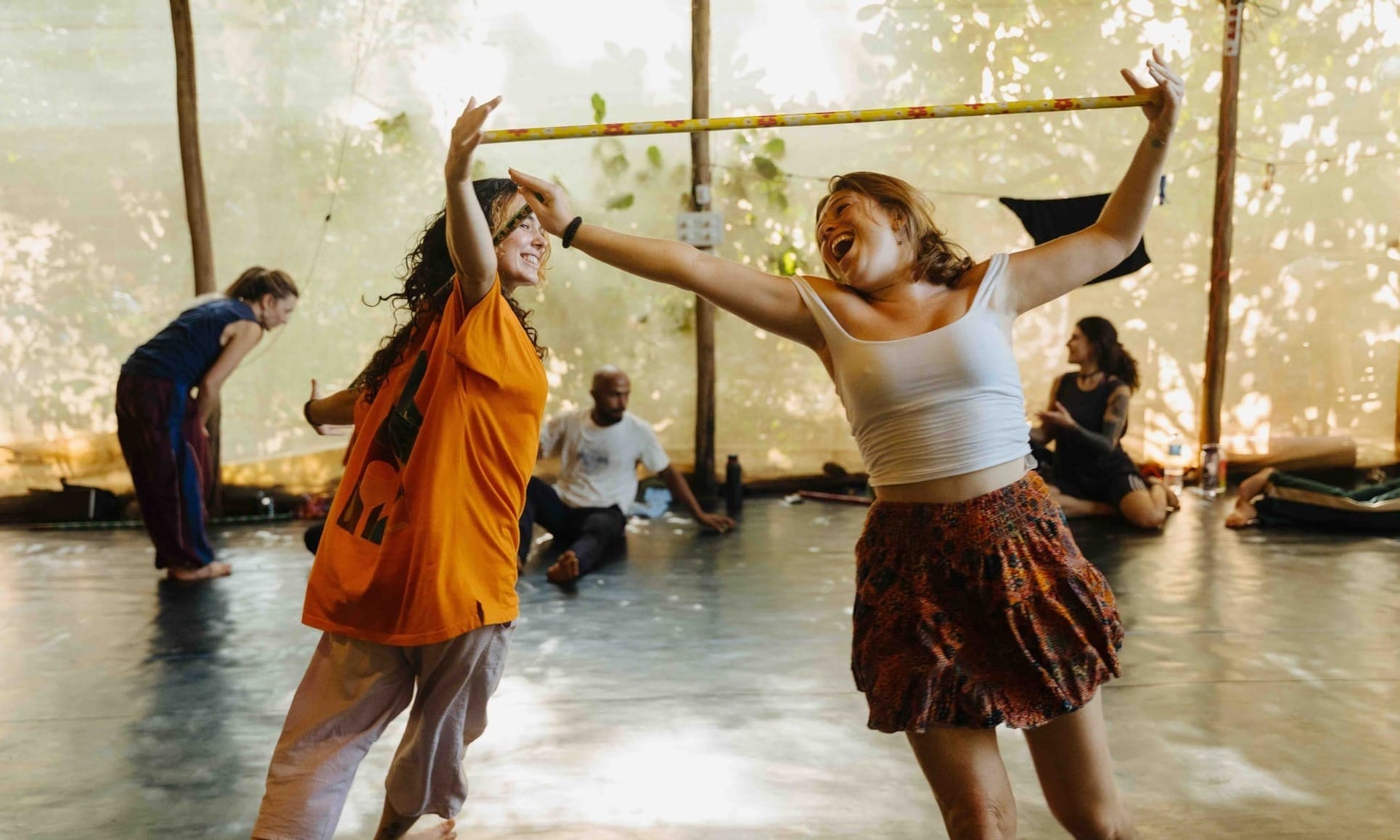
Upcoming Kalakeli Retreat from 12th January – 3rd April 2026
The Alchemy of Togetherness
What transforms Kalakeli from a program into a pilgrimage is the web of connections spun between sweat sessions. Meals become feasts where Brazilian capoeiristas debate Indian classical dancers over jackfruit curry; ice baths turn into giggling rites of passage; sunset beach jams birth collaborations that outlast the residency. Georgie, a former participant, recalls "crying during a movement meditation, not from sadness, but because my body remembered joy before my mind did."
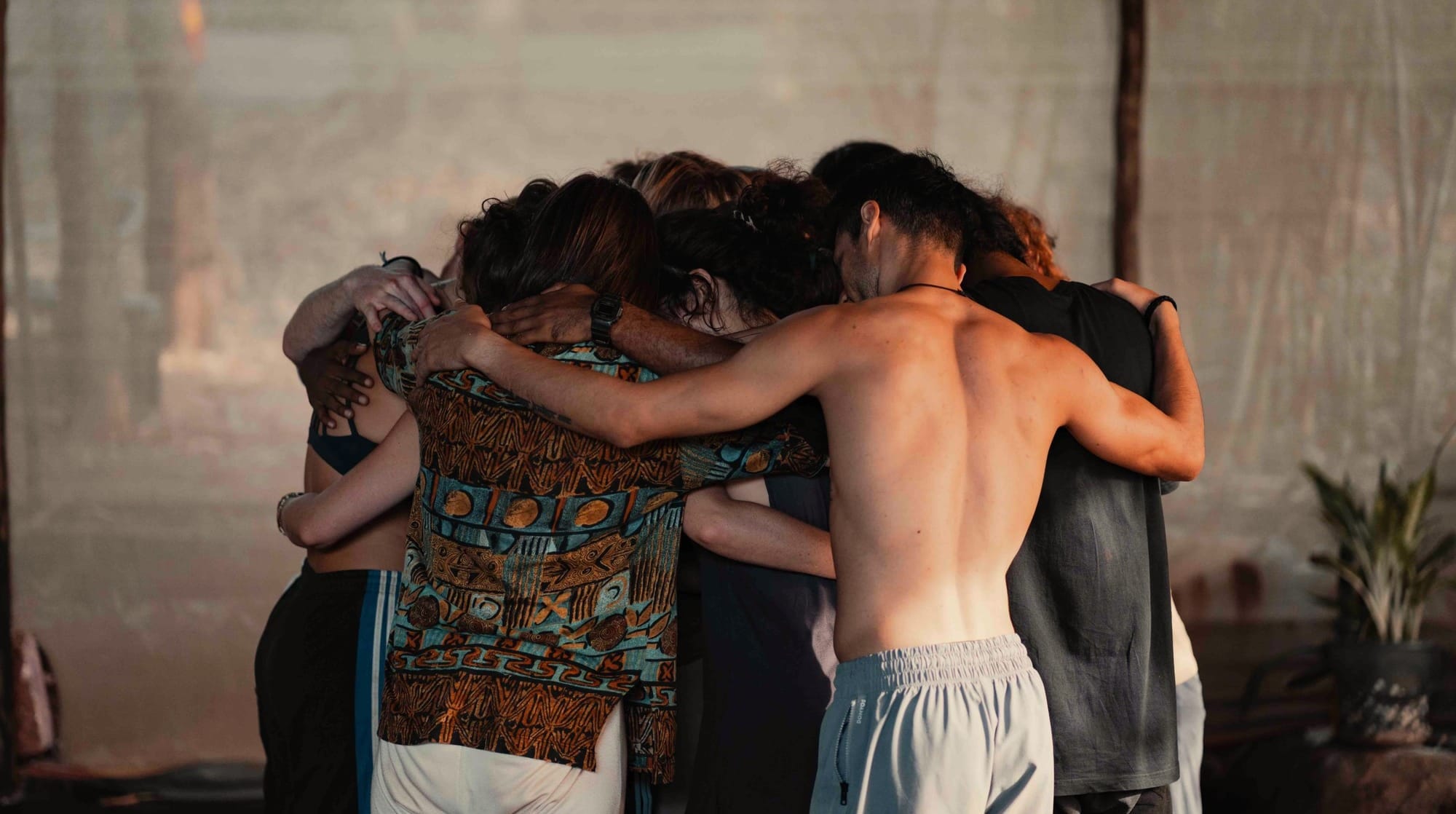
Visiting teachers—a revolving constellation of choreographers, martial artists, and healers—speak of the space’s rare magic. Kevin Turner, a company director who taught there, describes "a generosity of spirit that’s palpable. No one’s competing. Everyone’s remembering." Even the land seems to participate: monkeys stealing sarongs from clotheslines, sudden rainstorms cooling sunbaked skin, the jackfruit tree dropping ripe offerings mid-rehearsal.
The Call Across the Water
The next chapter begins January 2026: three months where the jungle will shape bodies and the sea will salt wounds into wisdom. Applications ask not for polished reels, but for willingness—to move, to listen, to unlearn. Beginners find hands steadying their first handstands; professionals rediscover the itch to play.
Some arrive seeking technical growth; others come hollowed out by cities and deadlines, leaving with calloused feet and quieter minds. All carry pieces of the experience forward: the way Micka’s laughter crinkles his eyes during partner acrobatics, the taste of fresh coconut after morning training, the moment in a bonfire circle when a stranger’s story becomes your own.
The studios will still stand open to the sky. The jackfruit tree will still stretch its arms wide. And the body, when given space to speak its untranslatable language, will always surprise you.




